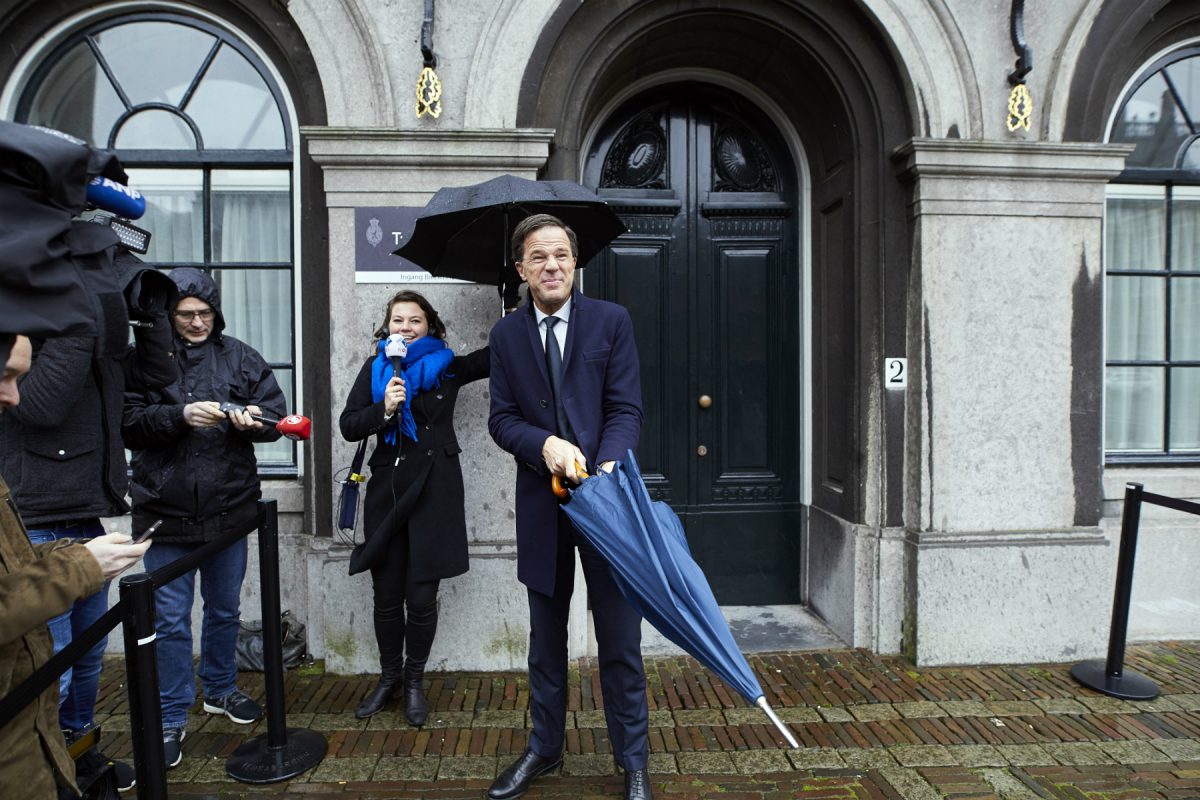Rutte seeks ‘stable’ coalition of four parties for next cabinet

Prime minister Mark Rutte is looking to put together a ‘stable’ coalition of four parties following last week’s election.
Rutte told reporters he preferred a majority in both houses of Parliament to a minority government, following a brief meeting with health minister Edith Schippers.
Schippers is spending the day meeting the leaders of all 13 parties in the new Parliament in her role as ‘verkenner’, taking initial soundings to gauge potential coalition options. Parliament will debate her findings and the election result on Thursday.
Rutte repeated his pre-election promise that he would not work in government with Geert Wilders’s anti-Islam PVV party, but beyond that all options were open. He said the most likely coalition would involve the Christian Democrats and D66, together with a fourth party – either the Socialists (SP), ChristenUnie, GroenLinks or Labour (PvdA). ‘All these parties have their advantages and disadvantages,’ said Rutte.
Senior Labour politicians, including leader Lodewijk Asscher and departing international development minister Lilianne Ploumen, have said the party should not seek to stay in government following its heavy election defeat, while there are deep divisions between the Socialists and Rutte’s VVD party on major issues such as health and pensions.
Policy differences
Rutte identified five policy areas he wanted his next cabinet to focus on: reducing the tax burden for middle incomes, investing in care for the elderly, the switch from fossil fuels to renewable energy, improving conditions for employers, and extra spending on defence and police.
GroenLinks leader Jesse Klaver, who was second on Schippers’s list, said he favoured a ‘progressive Christian’ cabinet, potentially without Rutte’s VVD. ‘I said that before the elections and I’m saying it again today: I think we need to look broadly at the possible majority options,’ he said. Klaver added that the only party he ruled out was the PVV.
Klaver said his policy priorities were to close the gap between high and low incomes, tackle climate change and impose a ‘humane refugee policy’, putting him at odds with Rutte on the economy and asylum.
But CDA leader Sybrand Buma dismissed the idea of leaving Rutte out of the coalition. ‘I think it’s highly illogical to suggest building a coalition with the largest party, given the election result,’ he said.
Wilders: ‘undemocratic’
D66 leader Alexander Pechtold said his preference was for a four-way coalition with the VVD, CDA and GroenLinks. He also ruled out a deal with Wilders’s party.
Wilders argued it was ‘undemocratic’ to exclude his party and the 1.3 million voters who chose the PVV from the talks from the outset. He proposed a six-way coalition of VVD, PVV, CDA, 50Plus, SGP and Thierry Baudet’s new Forum voor Democratie party.
The VVD won 33 seats in the election, while the Christian Democrats and D66 each have 19. The ChristenUnie’s five seats would be enough for a narrow majority in both houses, while a coalition with GroenLinks’s 14 MPs would secure a comfortable majority but have more ideological differences. The SP also finished on 14 seats while Labour (PvdA) crashed from 38 in the last Parliament to nine.
Schippers, who has been health minister since 2010, also said she would be quitting politics once the new government takes office. ‘It’s a significant day for me because I will not be taking a role in the new cabinet,’ she said. Schippers was not on the VVD’s list of candidates for the election but could have kept her job, as cabinet ministers do not need to be elected as MPs.
Thank you for donating to DutchNews.nl.
We could not provide the Dutch News service, and keep it free of charge, without the generous support of our readers. Your donations allow us to report on issues you tell us matter, and provide you with a summary of the most important Dutch news each day.
Make a donation